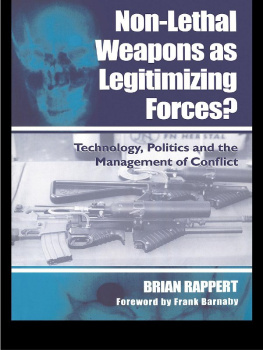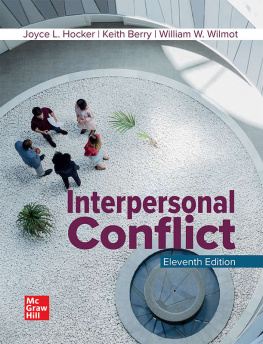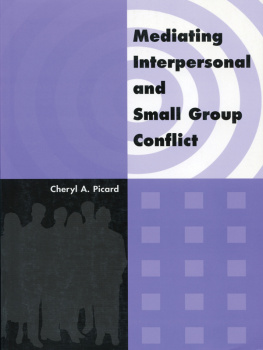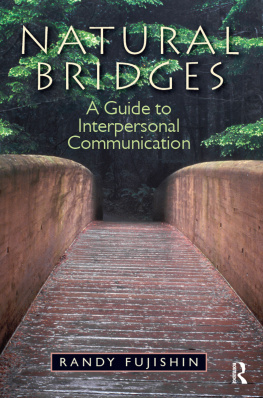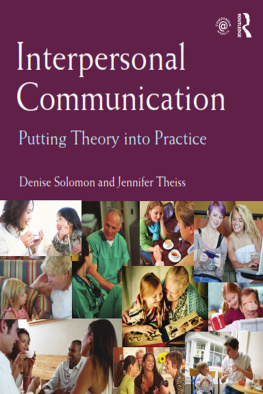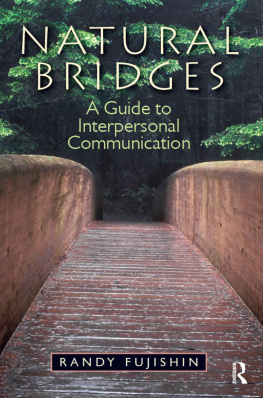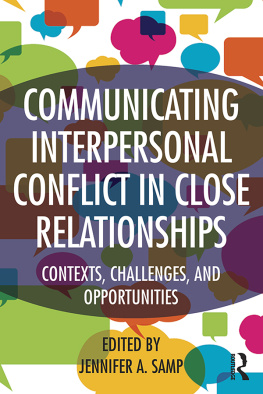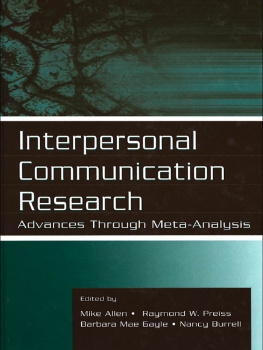Copyright 2016 by SAGE Publications, Inc.
All rights reserved. No part of this book may be reproduced or utilized in any form or by any means, electronic or mechanical, including photocopying, recording, or by any information storage and retrieval system, without permission in writing from the publisher.
FOR INFORMATION:
SAGE Publications, Inc.
2455 Teller Road
Thousand Oaks, California 91320
E-mail: order@sagepub.com
SAGE Publications Ltd.
1 Olivers Yard
55 City Road
London EC1Y 1SP
United Kingdom
SAGE Publications India Pvt. Ltd.
B 1/I 1 Mohan Cooperative Industrial Area
Mathura Road, New Delhi 110 044
India
SAGE Publications Asia-Pacific Pte. Ltd.
3 Church Street
#10-04 Samsung Hub
Singapore 049483
Acquisitions Editor: Jerry Westby
Editorial Assistant: Laura Kirkhuff
Production Editor: Olivia Weber-Stenis
Copy Editor: Judy Selhorst
Typesetter: Hurix Systems Pvt.Ltd.
Proofreader: Christine Dahlin
Indexer: Molly Hall
Cover Designer: Candice Harman
Marketing Manager: Liz Thornton
Printed in the United States of America
ISBN 978-1-5063-0337-6
This book is printed on acid-free paper.
15 16 17 18 19 10 9 8 7 6 5 4 3 2 1
Foreword
Randy Means
I learned early in my 35-year law enforcement career that human relations skills are important, but it was not until years later that I realized, profoundly for me, just how important they are. I learned also that maximizing performance in this area wasnt going to happen by itself in the natural flow of law enforcement affairs.
There are a number of factors working against that possibility. They begin with issues like age (young), gender (male), and associated sub-cultural influencesfor example, the idea that being nice to people is a sign of weakness that will cause people to try to take advantage of you, and this will get you hurt or killed. Of course, the longer I work with law enforcement, the more veteran professionals I encounter who prove that it is possible to be nice and tactical at the same time, and that being nice is tactical most of the time. Actually, whats not tactical is fighting, which dramatically increases the risk of injury and death to both officers and citizens.
I learned that some officers can walk into a biker bar, make an arrest, and leave with a friendnot every time, certainly, but a lot of the time. I learned also that some officers can start a fight at a pacifist convention, and that those officers often have reputations in this regard. Other officers dont welcome their arrival at a call in progress because of their tendency to incite people and aggravate situations: Everything was fine until he got here.
It turns out that in our world there are anger reducers and anger producers. These bulls in a china shop are, by their behaviors, anger producers. They are a danger to themselves and others and often seem to be unaware of it, blaming others for the negative outcomes of their encounters or sometimes reveling in them. In any event, these problem children need to be fixed or removed from law enforcement employment. They make everything worse and a great deal more dangerous for everyone. Their problems can get other officers hurt or killed.
Of course, these same officers also gum up criminal investigations and cause more complaints, lawsuits, and liability. Good officers end up the subjects of personnel complaints or lawsuits just for being where these anger producers are working. The more conflict there is in police transactions, the worse everything is for everybody.
A highly successful law enforcement veteran (and widely recognized interpersonal communication skills trainer) told me long ago that voluntary compliance is the gold standard in law enforcement professionalism. He was of course talking about not having to fight people to get things done. My only refinement of that thought over the years since is to note that compliance involves doing what youre told. I refer to compliance as the silver standard. I believe that voluntary cooperationwhat the law calls voluntarinessis the gold standard. When officers seek voluntary cooperation, people feel that they are making their own choices, not being bossed around, and that their freedom, particularly their freedom of choice, is not being stripped away. Through such practice, everybody involved tends to be reasonably happy and the law is almost never offended. In life and in the law, there is a profound and substantive difference between asking and telling.
Everyone knows that some officers are much better than others at getting a suspect to provide a voluntary confession. The same is true of orchestrating a legally voluntary citizen contact or getting a voluntary consent to search. Some officers are simply a lot better than others at getting voluntary cooperation. Obviously, they accomplish most of this superior law enforcement work through their exceptional human relations and interpersonal communication skillsthey kill people with kindness, or their gift of gab at leastand in this process further virtually all broader law enforcement interests.
The starting point, then, is simply to realize that the most important improvements in police effectiveness and professionalism are made largely through improvements in human relations and interpersonal communication skills. For all the technological advancements in policing, it remains a people profession. Many have suggested the applicability to law enforcement work of the Golden Rule found in religious teachings. Obviously, no single approach works every time, and being nice to people is not always possible or even wise in certain situations, but treating people with respect, dignity, and all the kindness that circumstances permit is usually a good start in public contact professionalism.
The author of this book, Brian D. Fitch, has more than 33 years of full-time service with the Los Angeles County Sheriffs Department; he has worked extensively in patrol, detention, and investigations, as well as in training at both his own departments academy and the Los Angeles Police Department Academy. He instructs law enforcement personnel nationally and internationally on communication, leadership, and ethics. He also holds faculty positions at California State University, Long Beach; Woodbury University; and Southwestern University School of Law. His masters degree in communication studies and his doctoral degree in human development complement his vast applied experience, making him one of only a handful of scholar-practitioners in the United States capable of authoring this exceptional book.





